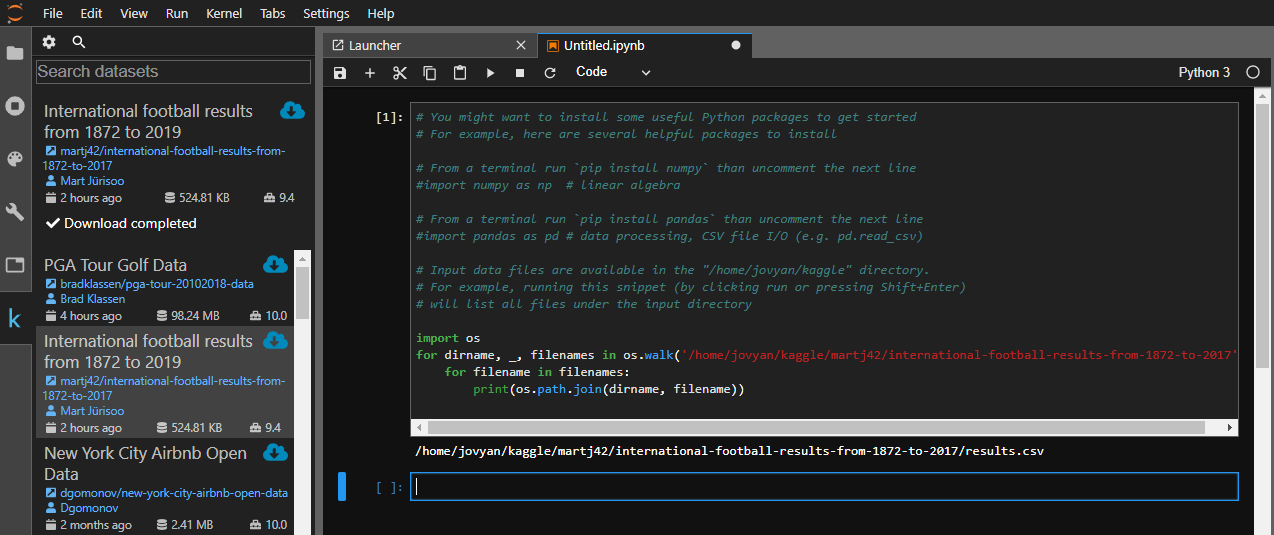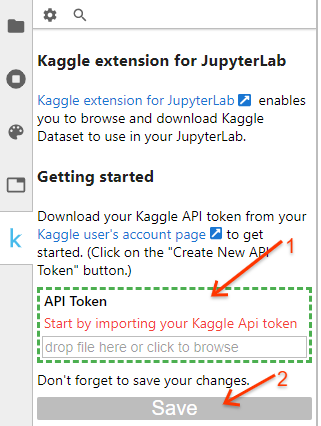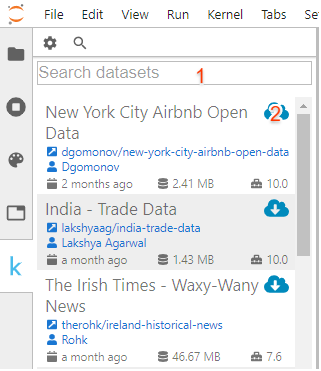@kaggle/jupyterlab v1.0.3
@kaggle/jupyterlab
Official Kaggle extension for JupyterLab.
Requirements
- JupyterLab >= 1.1.0
- A Kaggle account for accessing Kaggle API
To run this extension, you will need to download a Kaggle API token. You can find the token on your Kaggle account page.
Once you download the token to your local machine, you can drag & drop the token onto the settings page of the Kaggle extension for JupyterLab.
Overview
Kaggle extension for JupyterLab enables you to browse and download Kaggle Datasets for use in your JupyterLab instance.

Getting started
Install
Run the following command on your JupyterLab system to install the extension.
jupyter labextension install @kaggle/jupyterlabNext time you start JupyterLab, you should see a shiny new Kaggle icon on the left panel.
![]()
Configure
To use the extension, you’ll need to download your Kaggle API token from your account page. You can import the token into the extension by dragging & dropping the downloaded file into the dotted area, or you can click on the input box to bring up the file browser (1). Once you’ve imported the file, be sure to save your changes (2).

Once you save the changes, it will automatically take you to the dataset list panel, but you can always click on the settings icon to update the token.
Work
- On the dataset listing page, you can enter a search term in the input box to filter the results.
- Once you find the dataset you’re interested in, click the download icon to download the dataset to your system.

Contributing
We'd love to accept your patches and contributions to this project. See CONTRIBUTING.md for more information.
Development
Here are some quick instructions to get you started experimenting with this extension locally.
Requirements
Build & Run
# Clone the repo to your local environment
# Move to jupyterlab directory
# Install dependencies
> yarn
# Build All
> yarn build:all
# Start the docker running JupyterLab with @kaggle/jupyterlab extension
# Look for the url to access the JupyterLab instance in the console output
# once the service finishes starting up
> yarn docker
# If you are working on Windows, run this command instead
> yarn docker:winYou can modify the Typescript files while docker is running and rebuild the extension to see the changes in JupyterLab. This requires a refresh of your browser after the extension has been rebuilt.
# Rebuild Typescript source after making changes
> yarn build6 years ago
6 years ago
6 years ago
6 years ago
6 years ago
6 years ago